Description
*** Please note that thornless honeylocust are grown from seed collected from parent trees that do not have thorns (Gleditsia triacanthos inermis), but we cannot guarantee they will be 100% thornless ***
- Latin: Gleditsia triacanthos
- Other Common Names: Common honeylocust, honey-locust
- Zones: 4-10
- Mature Height: Typically grows 30-60 feet (9-18 meters) tall with a round, spreading crown (Missouri Botanical Garden).
- Soil and Climate Preferences: Native to the United States, it thrives in moist, rich, well-drained soils but adapts well to various soil types. Prefers full sun and can tolerate drought, wind, and heat. Known for ease of transplantation and cultivation (Missouri Botanical Garden).
- Notes: In late spring, produces inconspicuous greenish-yellow or greenish-white flowers in racemes. Occasionally develops long pods up to 18 inches (46 cm) long, dark brown with a purple tint, flat, and twisting. These pods contain seeds embedded in a sweet gummy substance, giving the tree its name. Leaves are dark green, pinnately compound, reaching up to 10 inches (25 cm) in length, with leaflets measuring 0.5-1.5 inches (1-4 cm) each. Turns bright yellow in fall. Popularly used as a shade tree due to its fast growth rate (Missouri Botanical Garden, Ohio State University). Bark starts gray-brown and smooth in young trees, becoming rough with age, developing plates that scale over time (Ohio State University).
- Problems: Vulnerable to canker, powdery mildew, leaf spot, rust, and witches’ broom diseases. Also susceptible to various pests including webworms, borers, leafhoppers, bagworms, plant bugs, leaf miners, and spider mites (Missouri Botanical Garden).
- Wildlife: Seeds are consumed by a variety of animals including cattle, rabbits, squirrels, and small birds.
Cold Stream Farm supplies thornless honeylocust trees which are grown as bare root seedlings and transplants and sold both wholesale and retail with no minimum order.
For more detailed information, you can refer to:
- Ohio State University: Honeylocust
- Missouri Botanical Garden: Thornless Honeylocust Details
- Additional information on Gleditsia triacanthos can be found on the link: USDA / NRCS PLANTS Database.

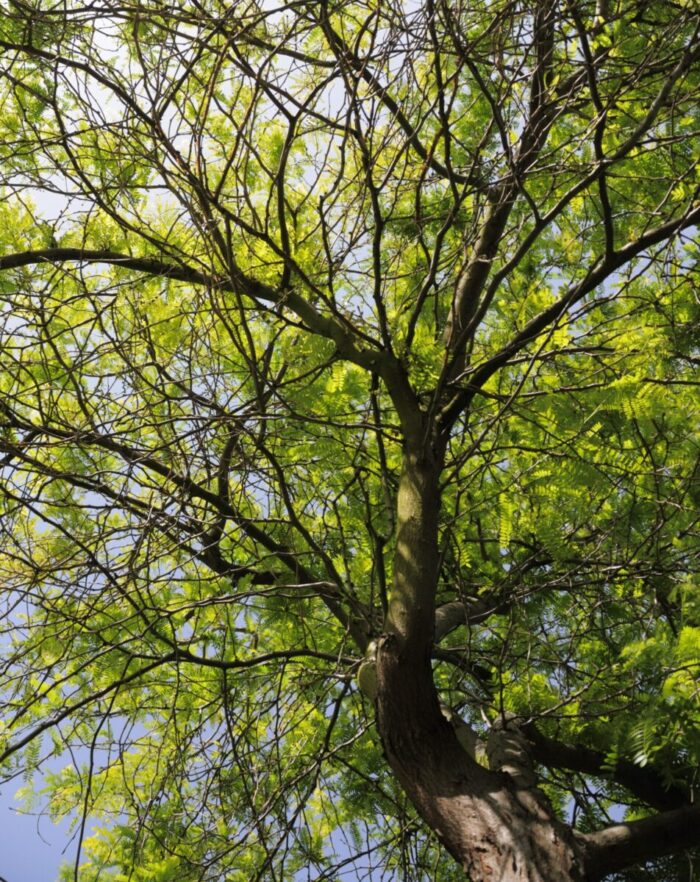
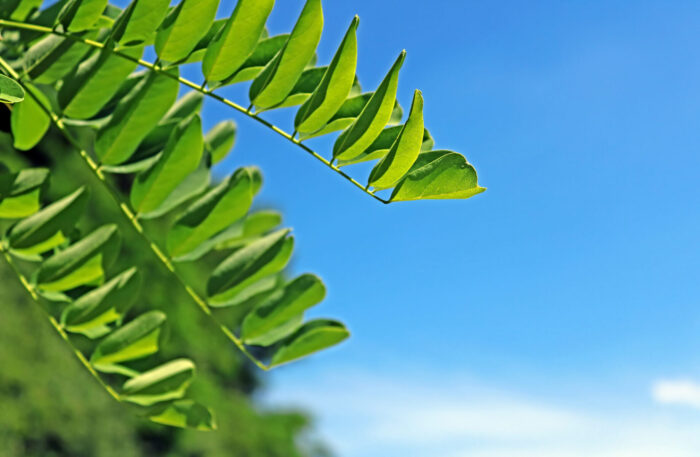
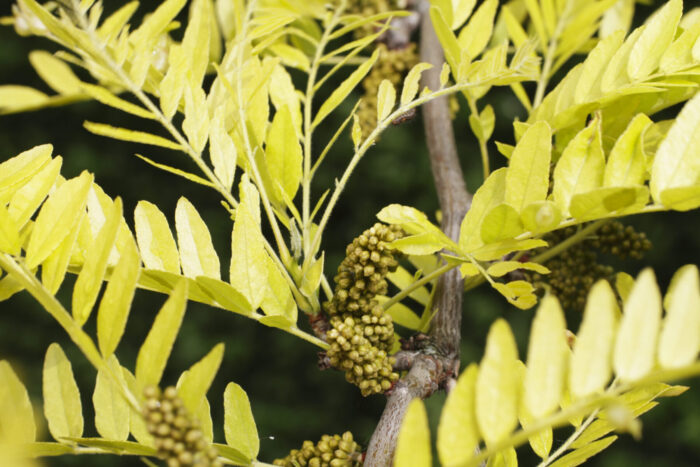
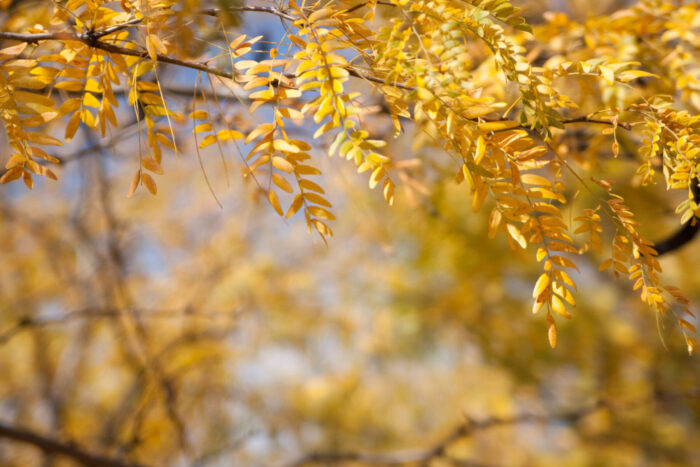
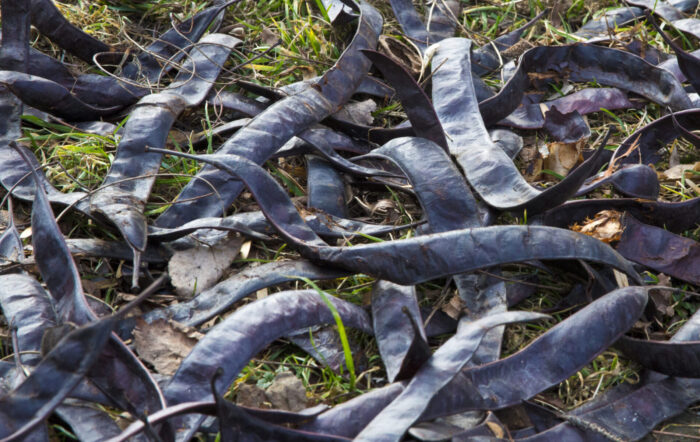
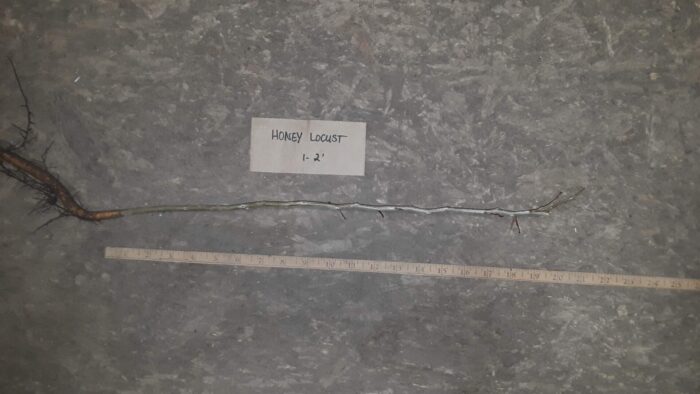
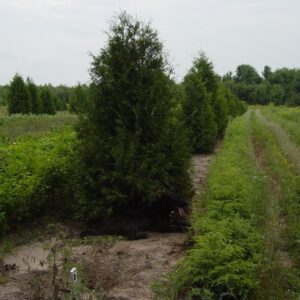
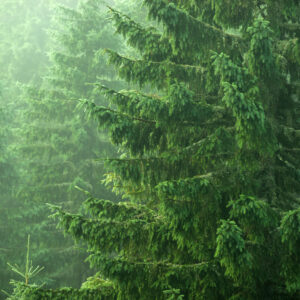
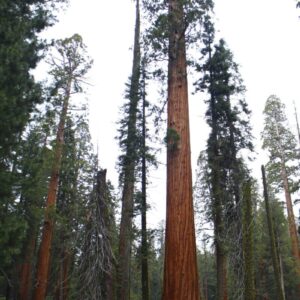
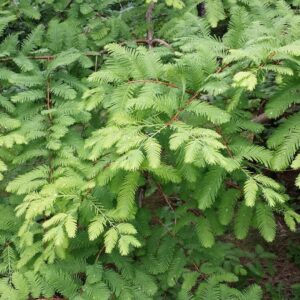

Leslie –
I ordered 100 6″ to 12″ honey locust trees. They arrived in mid March, they were packed very nicely and looked healthy. I promptly planted all the trees. Within the first week after planting some of the trees started to wake up. We are now almost in mid May some still are green but have not yet awaken. They still look good and I am hopeful they will awaken soon. I have about 8 brown ones that don’t look so good but I continue to water them, hopefully they will resprout from roots. Overall I’m very happy with the new trees.
Brett –
Bought a handful of these trees and planted them in the cow pasture to eventually become shade trees/ a potential source of treats in the form of pods. All of them survived the winter and are doing very well (except one the animals got to). The surviving trees grew a couple feet in the first year and appear to be on track to continue the trend. Very happy with these trees!